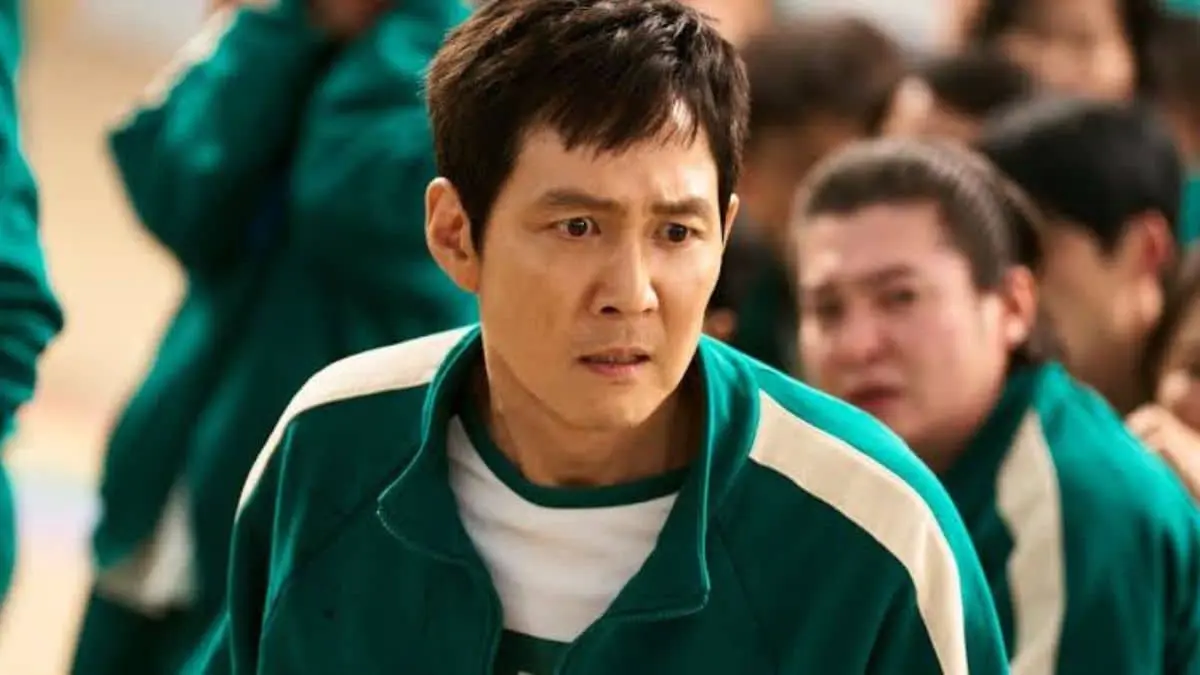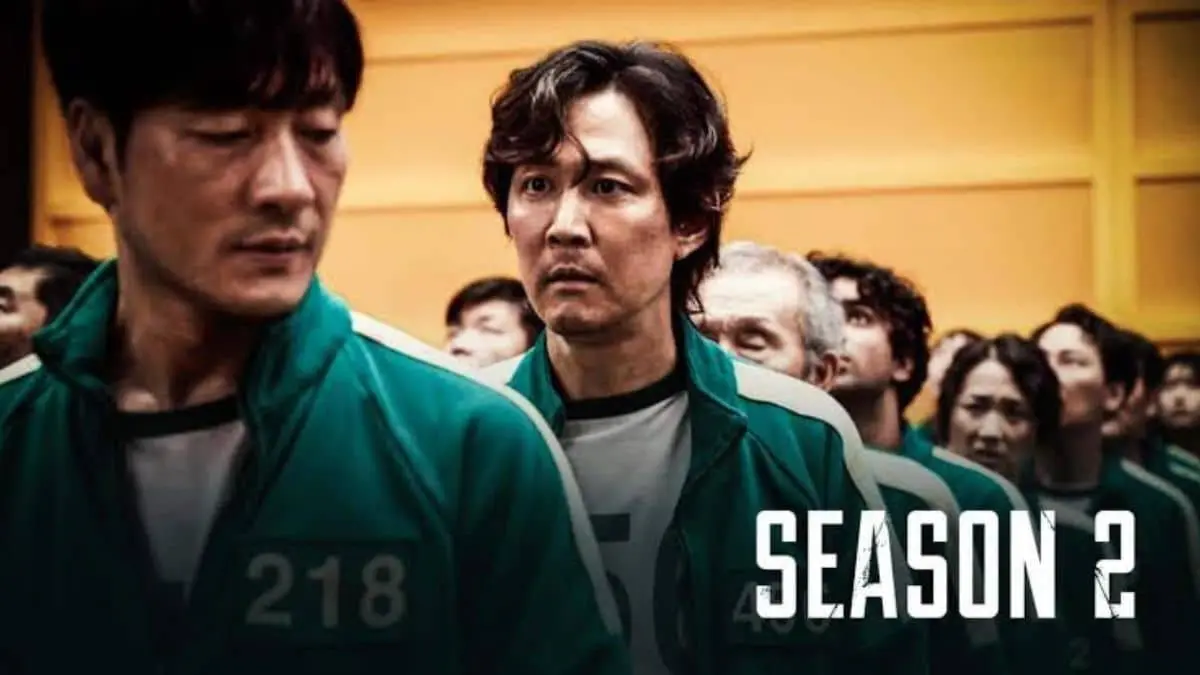After three years of waiting, Squid Game Season 2 is finally here, and it has a lot to offer. The show picks up right where the first season left off, diving deeper into the morally complex and deadly world it introduced in 2021. However, this season isn’t without its flaws, leaving fans split between exhilaration and disappointment. Let’s unpack what works, what doesn’t, and what makes Season 2 a gripping, albeit uneven, continuation.
A Fresh Start with Familiar Faces
Season 2 opens with Seong Gi-hun (Lee Jung-jae) at the airport, ready to fly to the U.S. to see his daughter. But, in a twist true to his obsessive nature, he decides to call the number on the Squid Game card instead. This decision pulls him back into the chaos of the Games.
The narrative immediately shifts gears, jumping forward two years. Gi-hun has transformed into a man on a mission, using his winnings to track down those responsible for the Games. Meanwhile, Hwang Jun-ho (Wi Ha-joon), the police officer presumed dead in Season 1, is now a traffic cop, having survived but retreated from his former life as a detective.
These early episodes focus on Gi-hun’s relentless hunt for justice, breaking free from the confines of the Games. This change in format is refreshing, offering insight into how deeply the events of Season 1 have affected him. Lee Jung-jae’s performance shines as he portrays a man hardened by loss and fueled by a singular purpose.
The New Players and Complex Villains
Season 2 introduces a mix of new characters who bring both depth and frustration. The standout addition is Lee Byung-hun’s Front Man, who takes on a more prominent role this time. His duality—both as a participant and manipulator of the Games—adds a layer of complexity missing from most other antagonists.
Choi Seung-hyun (T.O.P.) delivers a chaotic performance as Thanos, a former rapper whose antics are equal parts entertaining and frustrating. Unfortunately, while his character starts strong, he devolves into a caricature, undermining what could have been a compelling arc.
Meanwhile, Park Sung-hoon’s queer character offers a refreshing and emotional portrayal, adding a layer of nuance to the season. His exploration of gender and identity stands out in a world dominated by brutality. Yim Si-wan also impresses as a narcissistic boyfriend, bringing a relatable yet detestable energy to the group.
The Games: Familiar Yet Predictable
The Games themselves remain at the heart of the show, blending psychological tension with high-stakes physical challenges. While new games are introduced, the mechanics feel repetitive, and many plot twists are predictable. The creators often over-explain the rules and outcomes, diluting the suspense.
That said, the psychological impact of the Games has been amplified. Each challenge feels like an extension of the larger themes of greed, morality, and choice. A standout moment involves the introduction of a new voting system, allowing players to decide collectively whether to continue. This twist adds a layer of strategy but also mirrors societal dynamics, forcing players to weigh their survival against their morals.

Moral Complexity and Emotional Detachment
One of the most notable shifts in Season 2 is its approach to morality. While Season 1 focused on building empathy for the contestants, this season challenges viewers to confront the gray areas of human behavior. The players are no longer just victims of circumstance—they are active participants in their own fate.
This shift is particularly evident in the depiction of Gi-hun. Once an impulsive, bratty optimist, he’s now a solemn, determined man consumed by guilt and anger. His evolution is compelling, but it comes at the cost of emotional connection. Season 2 intentionally lowers the emotional stakes, making the Games feel less like life-or-death struggles and more like calculated battles.
What Works and What Falls Short
The show excels in its performances, with Lee Jung-jae and Lee Byung-hun delivering standout moments. Their dynamic adds tension and depth, especially in scenes where their conflicting motivations collide.
However, the season falters in its reliance on archetypes. Many new characters feel like recycled versions of Season 1 participants, from the loud and obnoxious troublemaker to the quiet, cold outsider with a soft heart. While some characters, like Gong Yoo’s enigmatic Recruiter, bring intrigue, others fall flat due to shallow development.
The pacing also struggles at times. Repetitive scenes—such as voting sequences and slow-motion dramatics—drag down the momentum, making the seven episodes feel longer than necessary.
Final Verdict: A Mixed Bag
Season 2 of Squid Game is both ambitious and frustrating. It dares to expand its universe, exploring themes of morality and survival with greater complexity. Yet, it’s weighed down by predictable twists, underdeveloped characters, and a tendency to over-explain.
Fans of the first season will find plenty to enjoy, especially in the performances and psychological tension. However, those hoping for a completely fresh take may feel disappointed by the show’s inability to fully escape its original formula.
Squid Game Season 2 is now streaming on Netflix. Whether you love it or find yourself critiquing its flaws, one thing is certain: it’s a conversation starter that keeps the world hooked on its deadly drama.
Also Read: The Last of Us Season 2: What We Know About the Highly Anticipated Return



